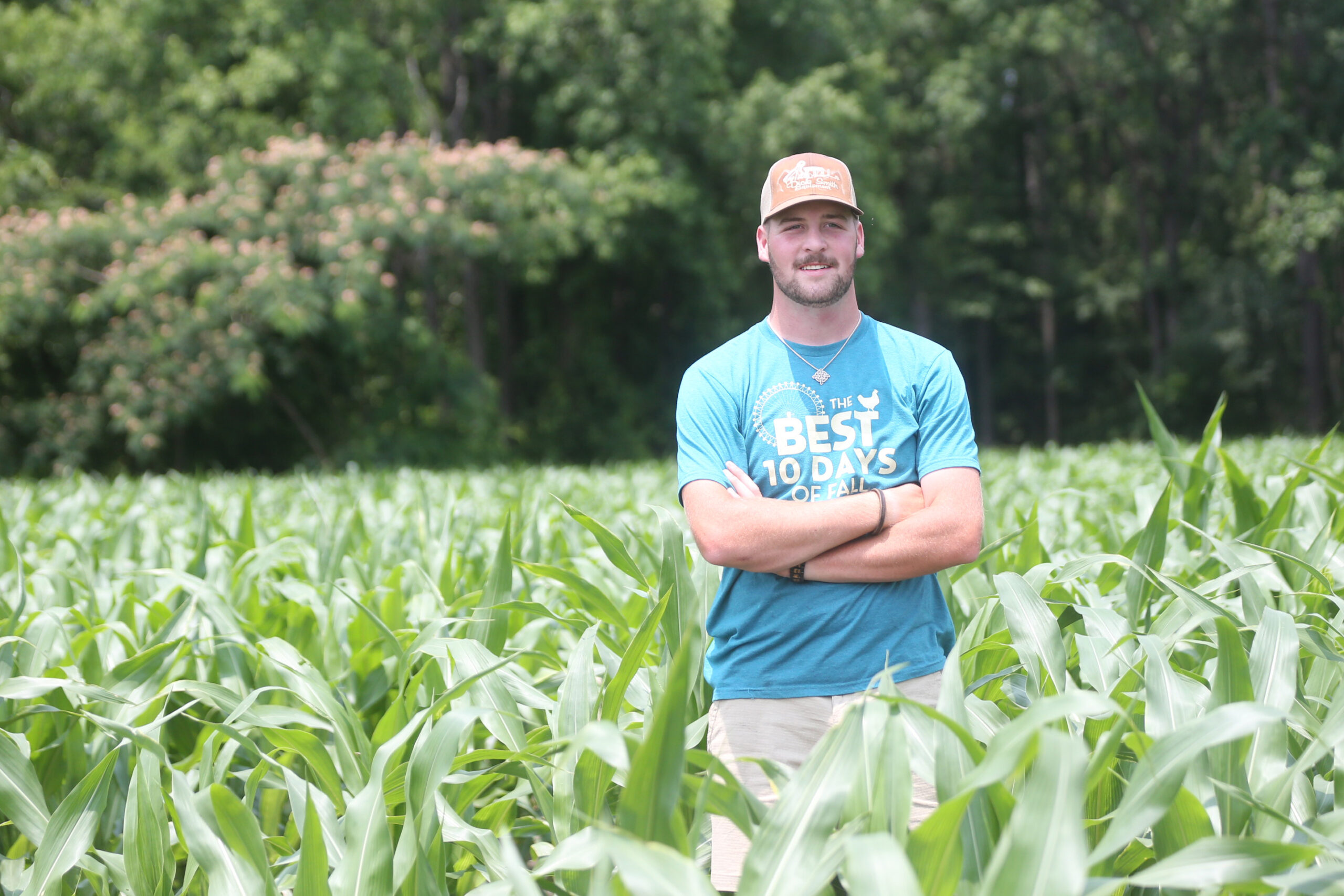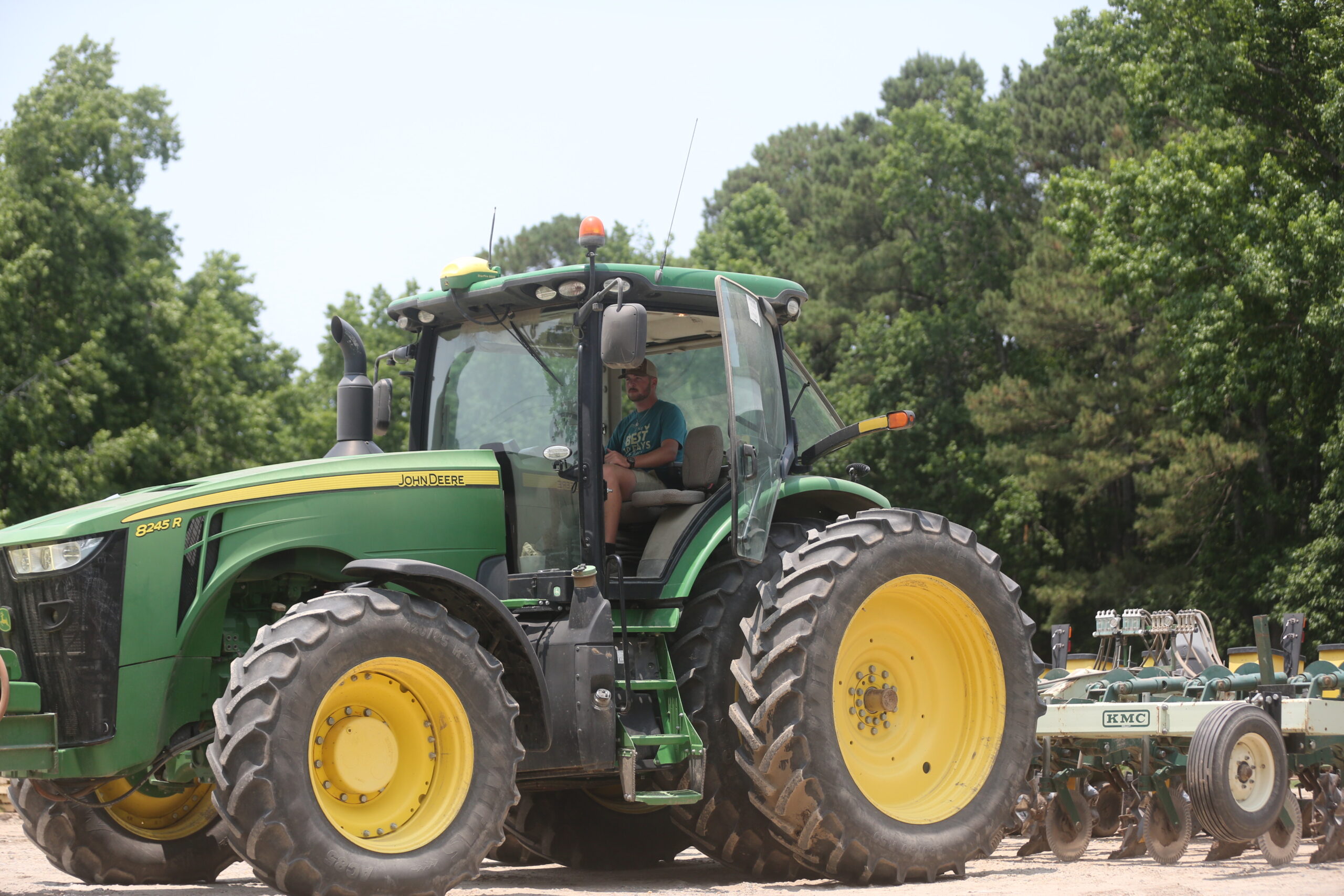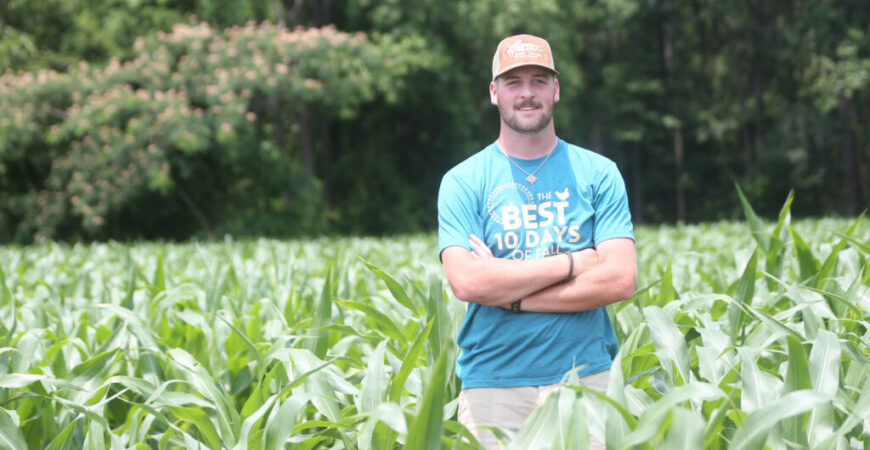MOUNT OLIVE — The soft rustle of crops in the breeze and the expansive farmland that stretches across both sides of Manly Grove Road serve as gentle reminders of the steady pulse of work that characterizes life on the farm.
Nestled along the back roads of Mount Olive, Insight Agronomics stands as a quiet outpost amid the agricultural landscape. Greeted by the sight of a towering John Deere tractor parked prominently at the gravel entrance, Duplin Journal met with Isaac Linton, a student from the University of Mount Olive.
Linton is no stranger to farm life. A fifth-generation farmer hailing from Grantham, Linton grew up homeschooled and surrounded by livestock as part of his family’s operation, Countryview Farms.
Although his agricultural journey started with livestock —showing pigs, turkeys, goats, and sheep through 4-H —his focus has shifted toward crop science. Currently pursuing a degree in ag production systems with a minor in plant science, Linton is exploring a new side of agriculture. Through his internship at Insight Agronomics, he is gaining hands-on experience in precision farming and crop management.

“Taking crop science and soil science intrigued me, and it’s something I didn’t have much experience in,” said Linton.
While livestock remains close to his heart Linton has embraced the challenge of learning something entirely new. “Stepping out of your comfort zone,” he says, “makes it more enjoyable because there’s something new every day.”
Linton, who lives seven minutes up the road from the facility, learned about the internship opportunity through one of his professors who works closely with Josh Raynor, the owner of Insight Agronomics. Linton told Duplin Journal that his internship has provided valuable hands-on experience, exposing him to various tasks.
“Yesterday, we were planting beans. Today, I was spraying pre-emergent on top of them,” said Linton, noting that each day is different.
The diversity of work has given him a comprehensive look into the dynamic nature of crop production, helping sharpen his observational skills and deepen his understanding of its complexities. One of the biggest lessons he has learned so far is that agriculture rarely offers a one-size-fits-all solution. Learning to solve problems and make informed recommendations for the farm has been a key takeaway for him.
“So, it’s learning to adapt to those scenarios and understand it further to make recommendations,” Linton explained, adding that every situation requires flexibility.
He has also been involved in several research trials, including testing different soybean varieties and participating in herbicide trials in neighboring counties. Much of his fieldwork has focused on scouting peanuts, corn, and soybeans for pests and evaluating plant health. He has gained valuable experience using advanced tools, such as GPS-guided auto-steering tractors, and learned about the importance of crop-specific management strategies, especially regarding chemical applications.

Balancing a 35-hour workweek that starts at 7:30 a.m. and wraps up around 5 p.m., he still finds time to enjoy the simple things in life like tinkering with his 1987 F250, spending time by the river, and being with his family and girlfriend.
With the internship running through August, Linton is gaining not only technical skills but also a broader perspective of the agricultural landscape.
As graduation approaches in May 2026, Linton is keeping his options open. He plans to earn a CDL and is considering truck driving after school, but the field of precision ag and crop production is now firmly on his radar.
 Twitter
Twitter Facebook
Facebook Instagram
Instagram






